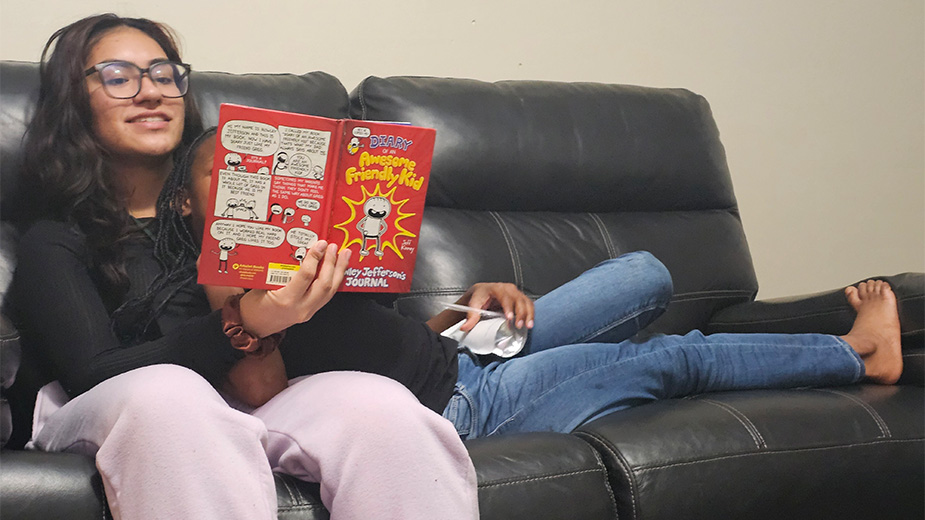Event 38’s Drones Give Farmers New Perspective
AKRON, Ohio — It’s safe to say Garrett Nees’ grandfather, a farmer all his life, was skeptical when he heard the 18-year-old say he had found a new way to improve their crop yield.
“My grandpa thought I was crazy,” he says, unable to hold back a laugh.
The family-owned farm in Breeda, Iowa, is home to hogs, cattle and thousands of acres of corn, so much corn that it’s impossible to gain an accurate assessment of the crop on foot. Nees would have to take to the air.
By drone.
The young farmer purchased a model E384 from a tech startup in Akron called Event 38 Unmanned Systems Inc. Now, getting an accurate picture of how the fields are faring is a simple matter of pushing a few buttons on his smartphone.
“Prior to owning this drone we went by what you can see from the road,” Nees says. “The fields are so large you can’t see everything. We can also see if there are any problem areas in the field and then we can take action to get a better yield.”
Mounted on the drone is a normalized differential vegetation index camera, or NDVI. It’s powerful enough to take pictures at the 2-centimeter level, allowing Nees to see individual leaves on each stock of corn. It can also measure the levels of chlorophyll in plants, telling him how healthy they are.
“Say your nitrogen levels are a little low in an area. You can see that from the air,” Nees says, “that your plants aren’t doing as well.”
The drone Nees purchased was assembled and modified in a small office inside a building that used to be home to B.F. Goodrich. In it, Jeff Taylor, age 27, oversees his crew as they make sales calls, adjust the optics in cameras, and fine tune their products. So far, they’ve sold hundreds of their drones to customers in 49 countries.
“We’re more than doubling every year,” Taylor says.
Taylor is the founder of Event 38 Unmanned Systems Inc., a company that specializes in designing drones specifically for the agricultural industry.
A drone, Taylor says, is “any flying vehicle that’s able to autonomously operate itself. It can stabilize itself and also navigate from one spot to the other based on a command or a mission that an operator gives it.”
In Mexico, Taylor’s drones survey beaches, counting sea turtle nests. In Belize, its fishery department uses them to monitor protected waters.
“There are definitely some interesting uses,” he says.
Taylor studied aerospace engineering at Case Western Reserve University in Cleveland before landing a job at SpaceX, the California-based spacecraft company founded by Elon Musk, CEO of Tesla Motors. It was there Taylor began tinkering with drones and found the inspiration for the name of his future company.
“I was working at SpaceX on a radio that had to be on a spacecraft that was going to dock at the international space station,” he recalls. “We had this requirement from NASA called Event 38,” or Event Verification I.D. 38, which assigned Taylor with making sure the radio wouldn’t take out the satellite phones the astronauts used as backup communication.
“I thought, ‘That sounds like a really cool name,’ ” he remembers.
What interested Taylor about drones wasn’t the flying and design as much as what they could do.
“I found myself more interested in the utility side of what drones could do. So I was taking them out, flying them on my own time and making maps,” Taylor says.
“I realized I could make maps at a lower cost than” other methods such as satellite or light aircraft, he says.
Soon Taylor found himself in a business accelerator in Santiago, Chile, struggling to get the parts through customs to build his drones. One weekend he flew to Akron to visit some friends who offered to let him “work on one of their tables in the corner of their office.” Event 38 still occupies the space.
“I trained a high school student to help me build the planes here and it basically took off,” Taylor says.
The promise the young company displayed didn’t go unnoticed. Last November, Event 38 was awarded a $25,000 grant from the Innovation Fund, which gives around $1.4 million annually to support early-stage tech companies.
“It was to assist them in developing some of the cloud-based drone data management,” says Cliff Reynolds, co-director of the fund.
“We don’t just write a check,” he emphasizes. “There are very specific milestones they have to reach.”
Event 38 is one of seven companies that received funding out of about 50 applicants. What set it apart from the competition, Reynolds says, is its strong management and clear vision for where to take the company.
“Plus the fact that they had customers,” he adds. “It wasn’t just a situation where they had a good idea. They actually had customers in a number of countries.”
The Innovation Fund is supported by the Ohio Third Frontier and operated by the Lorain County Community College Foundation.
In each funding cycle, it allocates two levels of endowment. The A grant can be up to $25,000 and used in the development and testing of new technology. The B grant is for companies “a little further down the road,” Reynolds says. It awards up to $100,000 that must be matched by nonstate funding.
“In most cases that would bring a company to commercialization,” he says, adding that Event 38 is a natural candidate for the B grant.
Back at his offices, Taylor and his staff are working on the features that will take his company into the stratosphere. The first is a drone “easy” button that would further simplify the operation of the craft.
A multispectral camera capable of reading infrared light is also in the works. “You’ll get an index that says which plants are healthy and how healthy they are,” Taylor says.
But what will really separate Event 38 from others, Taylor says, is an analytics package his team is working on “that takes the data from the drones and turns it into useful information.” It would then turn the information into programmed decisions, telling the farmer what to do and when.
Garrett Nees believes the drone is likely to join the plow and tractor as an indispensable tool of the farmer.
“I think it’s going to be almost a necessity in the near future,” he predicts. “I think the drone is going to put the farmers that have it above everyone else.”
Even his grandfather is starting to see the benefits.
“He still thinks I’m a little crazy but he’s more approving of it now,” says Nees. “He’s coming around.”
Pictured: Jeff Taylor, founder of Event 38, is a 27-year-old graduate of Case Western Reserve University with a degree in aerospace engineering.
Copyright 2024 The Business Journal, Youngstown, Ohio.



